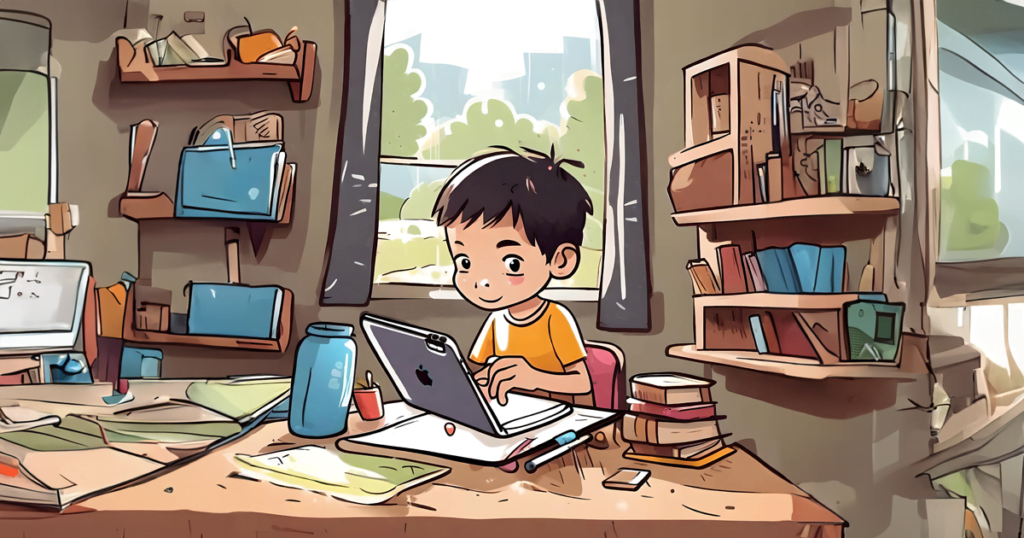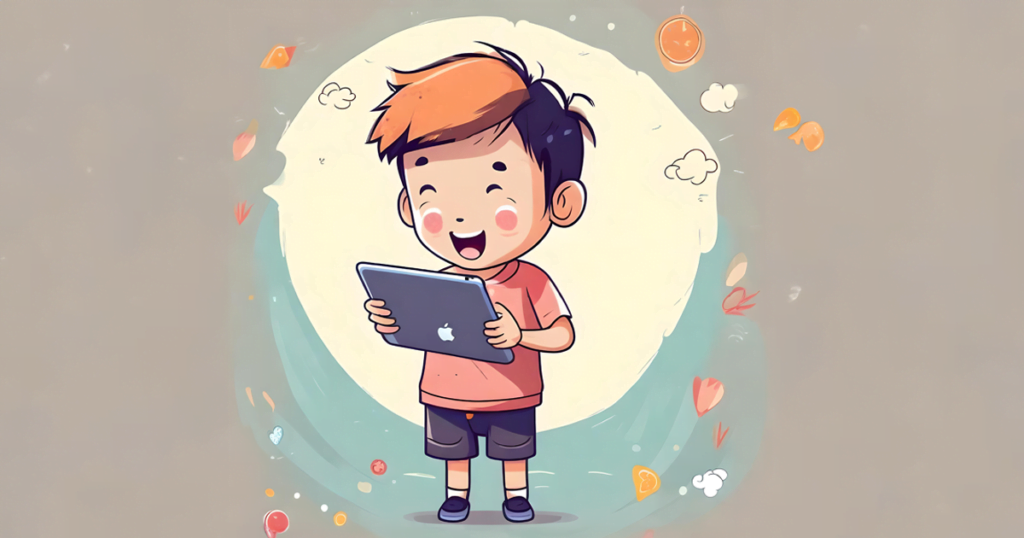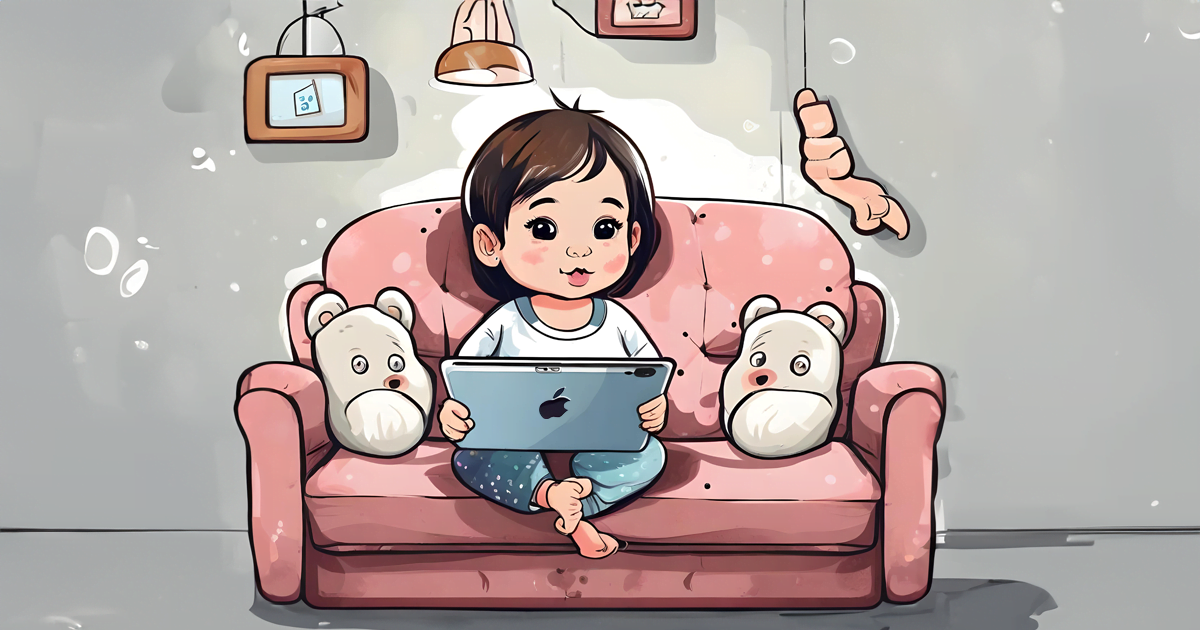Table of Contents
ToggleIntroduction: The Influence of AI on Child Development
The world is changing fast, isn’t it? Technology is developing at lightning speed, and it’s hard to keep up sometimes. We have smart TVs, smart homes, and even smarter phones. And now, we have virtual assistants like Siri, who can even chat with our children!
It’s not uncommon to see children these days asking Siri for help with homework, for jokes, or just having random conversations. This article will focus on an interesting interaction between a 5-year-old child and Siri, and how this reflects on the impact of AI on kids.
If you’re new here, feel free to check out our exploration into the Assertive Parenting Philosophy – a valuable read for understanding our approach to parenting.
Child-AI Interactions in Today’s World

Artificial intelligence, or AI, has become an integral part of our daily lives. From voice assistants like Amazon’s Alexa, Google’s Assistant, and Apple’s Siri, to more complex systems, AI is everywhere.
For our children, this technology is a part of their world just as much as ours. They grow up with AI, asking it questions, making requests, and even forming some sort of ‘relationships’ with it. A child’s curiosity knows no bounds, and Siri, Alexa, or any other AI is a perfect entity to unload all their numerous questions on, especially because it doesn’t tire, doesn’t get bored, and is always available.
In the home environment, these voice-activated assistants help with everything from answering questions like “Why is the sky blue?” to playing their favorite songs on demand. They are always present, always listening, always ready to respond.
The Video: A Child’s Conversation with Siri
This conversation between a child and Siri starts off in the most ordinary way. The child asks Siri how it’s doing, showing a basic level of social interaction and politeness. Siri responds, and the conversation takes a twist. The child shares that they’re sad, seeking comfort, and the conversation gets interesting from here.
Siri offers some advice, although it might not be fully comprehended by a 5-year-old. Regardless, it shows the AI’s ability to understand human emotion, at least to a certain extent. Siri then suggests a nearby family welfare service – an intriguing response, as it shows the AI’s attempt at providing some form of ‘help’ based on location data.
Yet, when the child probes more, Siri falls short, unable to explain what a family welfare service is. The child then asks Siri to make them happy. Siri, in its algorithmic wisdom, decides that a joke is the best remedy. It shares a couple of jokes, which, while funny, are met with logical counterarguments by the child. And with that, the conversation comes to an end.
The conversation is simple, yet profound in many ways. It showcases the potential AI interactions have in the everyday life of a child.
Understanding the Impact of AI on Kids
In the interaction we just explored, we can see some clear impacts that AI can have on children. These can be both positive and negative.
Positive Impacts

AI for Learning
Siri and similar technologies have vast databases of knowledge that they can share in an easily understandable manner. Children can learn a lot by simply asking questions, and this can supplement their school education and general curiosity about the world.
Emotional Comfort
The child in the video turns to Siri when they’re feeling down. While Siri might not replace human comfort, it’s still an entity that’s ready to listen and respond, providing some level of solace.
Humor
AI can generate and share jokes that can entertain children and brighten their day, as seen in the video.
Negative Impacts

Dependence
Too much dependence on AI can potentially inhibit a child’s problem-solving skills. When they get used to Siri providing all the answers, they may not feel the need to think critically and find solutions on their own.
Privacy Concerns
AI systems like Siri often store conversation data to improve their services. This could raise privacy concerns when it comes to children.
Limited Emotional Understanding
As the video demonstrates, while Siri can identify sadness and try to offer comfort, its understanding of human emotions is limited. The jokes it shared, while meant to cheer the child up, didn’t hit the mark because they lacked real understanding of the child’s emotional state.
The Parent’s Role in a Child’s Interaction with AI

As parents, it’s important to navigate and guide our children’s interactions with AI. Here are some pointers:
Set boundaries
Limit your child’s interaction time with AI devices and encourage real-world play and learning as well.
Monitor Interactions
Regularly check what your child is asking Siri or any other AI. This will not only help you understand their curiosity and concerns but also ensure they’re using the device appropriately.
Privacy Settings
Check and adjust privacy settings on the AI devices to ensure your child’s personal data is secure.
Discuss AI
Explain what AI is to your child. Discuss the positives and negatives, and explain why limits are necessary.
Conclusion
AI is a powerful tool that can greatly benefit our children when used appropriately. As shown by the 5-year-old’s interaction with Siri, it can serve as a learning platform, an emotional comforter, and even a comedian. However, it is not without its pitfalls, and it’s our job as parents to guide our children through this brave new world of AI.
As our children grow up in a world dominated by technology, we must remember to strike the right balance between the real and virtual world for them. And above all, as we get busier in our lives, let’s not forget that no AI can replace the warmth, understanding, and emotional depth that we as parents can provide.
As we delve deeper into the realm of parenting in the digital age, it’s crucial to stay informed and adapt. Just as we explored in our blog post about the Impact of Assertive Parenting, understanding the impact of our words and actions on our children is key, and the same applies to the digital tools they interact with. Stay tuned for more insights and helpful tips.
Ultimately, while our children might find friends in AI like Siri, we are their first and real companions.
Understanding Your Child’s Interaction with AI: FAQs
-
What is the impact of AI on kids?
AI, like Siri, can have both positive and negative impacts on children. It can be a great learning tool, but can also lead to miscommunication and misunderstandings.
-
Why are kids so fascinated with Siri?
Kids are drawn to Siri due to its ability to engage in conversation, answer questions, and even tell jokes, making it an intriguing tool for their curious minds.
-
How can Siri be used as a learning tool for children?
Siri can help answer educational queries, teach children how to pronounce words correctly, give them quick facts, and even help them with their homework.
-
Are there any risks associated with children’s interaction with Siri?
Yes, there can be misunderstandings, and children might become over-reliant on Siri for answers. There’s also a risk of exposing them to inappropriate content.
-
How can parents manage their child’s interaction with Siri?
Parents can manage their child’s interaction with Siri by using parental controls, limiting the use of devices, and ensuring that they are present when their children interact with Siri.









